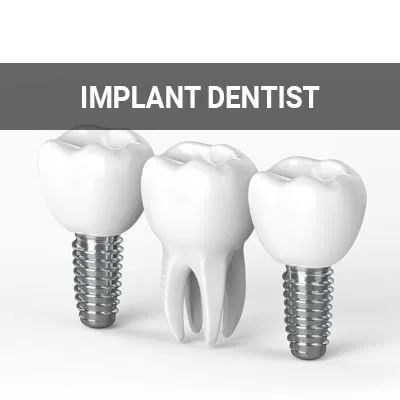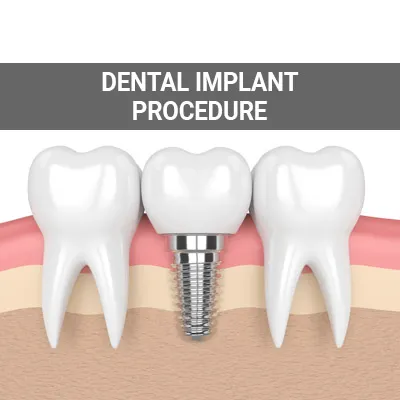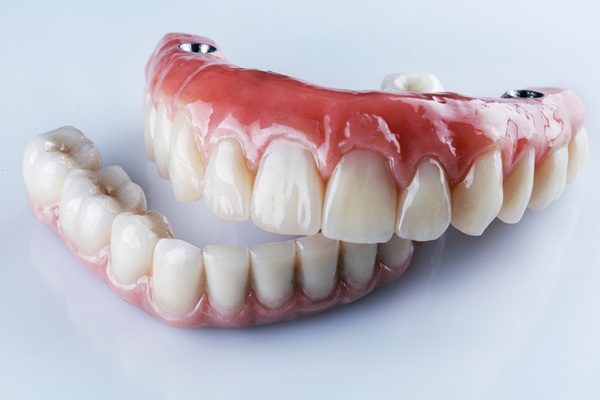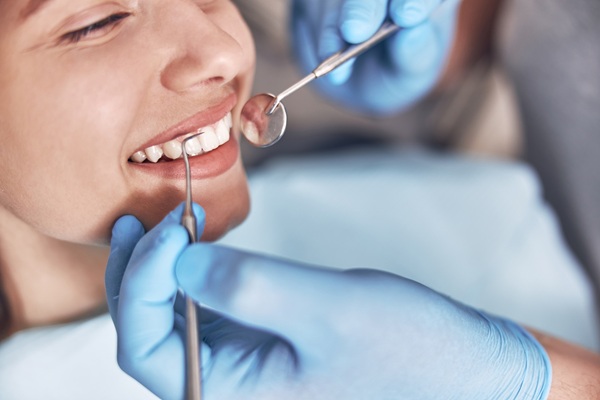Implant Supported Dentures Marietta, GA
Implant-supported dentures offer a practical, comfortable, and natural-feeling tooth replacement option for many patients. They are often a good choice for people who are missing all their teeth but still have a strong and robust jawbone. Implant-supported dentures use dental implants in the jaw to hold dentures in place that feel and function more like natural teeth than removable dentures.
Implant-supported dentures are available at Happy Dental and Orthodontics in Marietta and the surrounding area. They are a durable and natural-looking option for replacing missing teeth. We are experienced with performing implant procedures and can help you get the best results from your dentures.
Take care of your missing teeth with implant-supported dentures by calling our office at (770) 200-4034 today to set up an appointment and learn more.
Candidates for Implant Supported Dentures
For dentures, especially those replacing a full set of teeth, there are two common options: implant-supported and removable. As the names imply, the former use implants in the jawbone and are fixed in place whereas the latter can be taken out. According to the American Dental Association, implant-supported dentures are for patients who are in good oral health with enough bone density to support implants.
Many patients who choose implant-supported or fixed dentures report that they feel like natural teeth as they can eat and brush normally. Implant-supported dentures require a more extensive procedure for their placement. However, once they are in place, they can be a permanent solution to missing teeth with proper care. Additionally, they look, feel, and function like natural teeth.
“…implant supported dentures are for patients who are in good oral health with enough bone density to support implants.”
How To Get Implant Supported Dentures
There are several steps in receiving implant-supported dentures, including the initial consultation, two surgeries, denture placement, and recovery.
Consultation
To begin the process, the dentist will perform an examination and consultation to determine if implants are right for the patient. Dental implants require adequate bone density in the jaw to support the implants. Patients with deteriorated jaws may not be able to receive implants. However, as technology advances, dentists are increasingly able to strengthen and augment the jaw to allow implantation.
Implantation
During the first surgery, a small incision is made to expose the bone underneath the gums. We will drill holes deep into the bone to make space for the implants. A temporary artificial tooth may be placed for aesthetic purposes until the second surgery.
Patients must wait for osseointegration, the process in which the jawbone naturally forms with the dental implant. The implant then acts as a natural tooth root, and an abutment can be placed to secure the dentures.
During the second surgery, a small cut is made again to expose the implant. The abutment is placed, and the gum tissue is secured around the implant, leaving only the abutment exposed. The patient must wait two weeks for the gums to heal once again.
On the final visit, the dentures are placed over the abutment and we ensure they fit properly, are comfortable, and any adjustments are made.
Recovery
There are various waiting periods in which the bone, gums, and surrounding tissues heal naturally. During these periods, patients will be given specific instructions on how to keep the area clean for a fast recovery. Following each procedure, patients are prescribed antibiotics and pain-relief medication to reduce or eliminate discomfort and other symptoms. Those who experience swelling, bruising, pain, or bleeding should contact us immediately.
“There are several steps in receiving implant-supported dentures, including the initial consultation, two surgeries, denture placement, and recovery.”
Types of Implant Supported Dentures
There are two main systems for implant-supported dentures: bar-retained and ball-retained. In either case, the system is supported by several implants placed in the jaw. Additionally, the dentures typically are made of acrylic or porcelain and look like natural teeth. The main difference between the two types is how the dentures connect to the implants.
- Bar-Retained: In this setup, a metal bar follows the curve of the jaw. It is anchored to the mouth with the implants. The dentures connect to the bar to hold them in place.
- Ball-Retained: Ball-retained dentures, also called stud-attached dentures, more directly connect the implants to the dentures. A small attachment on each implant connects with a socket on the dentures. Typically, this attachment is ball-shaped, hence the name.
“The main difference between the two types is how the dentures connect to the implants.”
Check out what others are saying about our dental services on Yelp: Implant Supported Dentures in Marietta, GA
Benefits of Implant Supported Dentures
Implant-supported dentures are a popular choice for teeth replacements. Our team is well-versed in its benefits and drawbacks and provides knowledgeable guidance to every patient. According to the American Academy of Periodontology, these are some of the benefits you can expect from implant-supported dentures:
- Patients find them to be comfortable: Many people find implant-supported dentures more comfortable than removable dentures because they stay in place more firmly. This means the implant-supported dentures will not rub against your mouth or cause sores in the same way that loose, removable dentures can.
- Natural-Looking: Implant-supported dentures look like natural teeth. So, you can have a beautiful smile that is not a set of dentures. This can be a significant confidence boost for many patients.
- Effective Tooth Replacement: Before dentures, tooth loss can affect the way one speaks and eating solid foods. Fixed dentures are more similar to natural teeth in terms of function. So, patients can return to speaking confidently and enjoying more of the foods that they did before tooth loss.
- Supports Bone Health: Removable dentures can harm your jawbone by pressing and rubbing against it constantly. Implant-supported dentures, conversely, are more firmly fixed. They interact with your jawbone, much like natural teeth.
“Implant-supported dentures look like natural teeth.”
Questions Answered on This Page
Q. What are the benefits of implant supported dentures?
Q. What are the differences between implant supported dentures and removable dentures?
Q. How to get implant supported dentures?
Q. What are the types of implant supported dentures?
People Also Ask
Q. Why are dentures a preferred treatment?
Q. What are the implant-supported options to replace teeth?
Q. What should I do if I lose teeth?
Q. What does the implant recovery process look like?
Q. What are the benefits of dental implants?
Q. What is the overall process of replacing all my teeth?
Frequently Asked Questions About Implant Supported Dentures
Q. Can I remove my dentures?
A. No, implant-supported dentures cannot be removed by patients. These dentures are a type of permanent appliance that require a dentist to place or remove them. They are much like your natural teeth, so they can stay in your mouth at all times.
Q. Why not have an implant for each tooth?
A. Although single-tooth implants are a good treatment, it is not necessary when replacing a row of teeth. It is more cost-effective and requires a less invasive procedure to get implant-supported dentures. It is an equally effective but simpler treatment.
Q. How many implants will I need?
A. Typically, implant-supported dentures are connected to the mouth with between two and five implants. It is common for an entire row to attach to four implants. However, the number needed varies from case to case.
Q. How long do implant supported dentures last?
A. Implant-supported dentures are a permanent appliance. With proper care and regular check-ups, they can last a lifetime. Your dentist will let you know if they need to be replaced.
Q. What is the success rate of implants?
A. With a skilled dentist, implants have a success rate of over 95%. Placement is a relatively simple procedure. However, it sometimes requires sedation and there are occasionally minor complications.
Q. Which type of dentures do I need?
A. The American College of Prosthodontists suggests that you visit your dentist to determine which type of dentures is right for you. When visiting our office, our dentist will provide a consultation and exam. This initial evaluation will help inform the treatment plan.
Denture Terminology
Call Us Today
Implant-supported dentures can replace your missing teeth in both form and function. They offer superior results for many patients compared to other replacement options. Call Happy Dental and Orthodontics at 770-200-4034 to set up an appointment and learn more.
Helpful Related Links
- American Dental Association (ADA). Glossary of Dental Clinical Terms. 2024
- American Academy of Cosmetic Dentistry® (AACD). Home Page. 2024
- WebMD. WebMD’s Oral Care Guide. 2024
About our business and website security
- Happy Dental and Orthodontics was established in 2021.
- We accept the following payment methods: American Express, Cash, Discover, MasterCard, and Visa
- We serve patients from the following counties: Cobb County and Fulton County
- We serve patients from the following cities: Marietta, Smyrna, Sandy Springs, Atlanta, Kennesaw, Roswell, Acworth, East Cobb, Alpharetta and Fair Oaks
- National Provider Identifier Database (1407403652). View NPI Registry Information
- Norton Safe Web. View Details
- Trend Micro Site Safety Center. View Details
Back to top of Implant Supported Dentures











